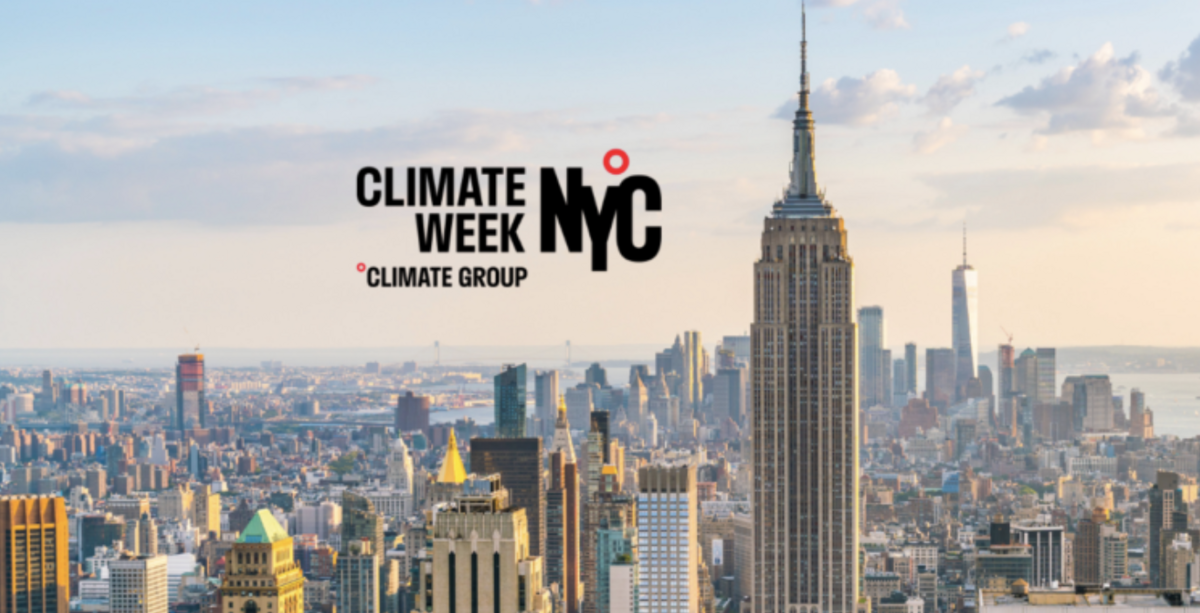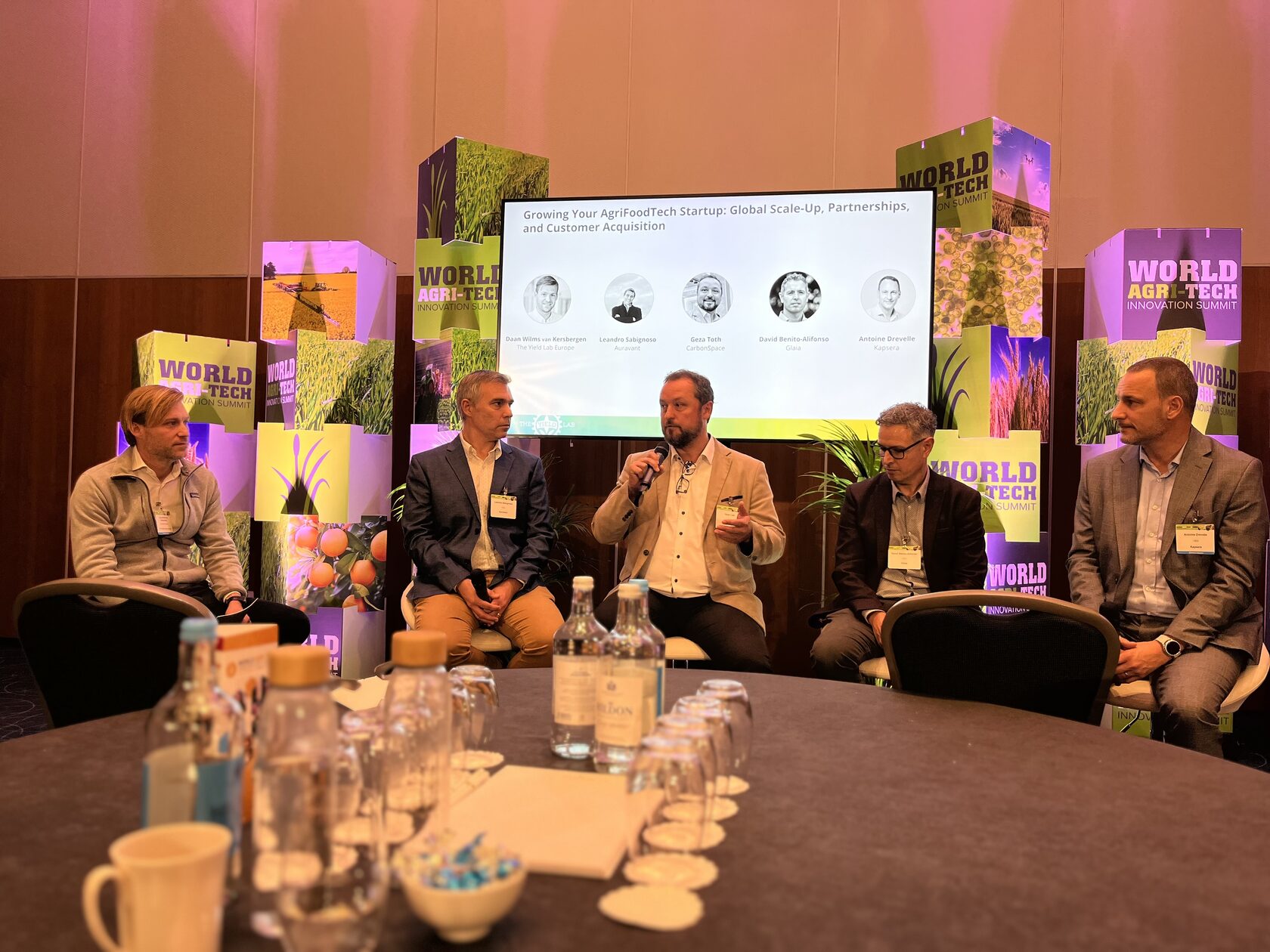Our Top Takeaways from Global Climate Tech Conferences
September 2024
By Ellen Young
October 29th, 2024
Enhancing NEE Estimations with Ameriflux at ICOS
September 10th - September 12th, 2024
At the Integrated Carbon Observation System (ICOS 2024) conference, Andrey Dara, Head of R&D at CarbonSpace, led a presentation entitled “Integrating Ameriflux Data in the CarbonSpace Platform.”
We kicked off by introducing CarbonSpace and our cutting-edge cloud-based platform. Our platform leverages advanced technology, like satellite imagery and machine learning, to estimate Net Ecosystem Exchange (NEE) — the net carbon in the atmosphere.
September 10th - September 12th, 2024
At the Integrated Carbon Observation System (ICOS 2024) conference, Andrey Dara, Head of R&D at CarbonSpace, led a presentation entitled “Integrating Ameriflux Data in the CarbonSpace Platform.”
We kicked off by introducing CarbonSpace and our cutting-edge cloud-based platform. Our platform leverages advanced technology, like satellite imagery and machine learning, to estimate Net Ecosystem Exchange (NEE) — the net carbon in the atmosphere.
We do so by leveraging international networks of flux stations that measure carbon directly from the atmosphere, where climate change happens. One such network is Ameriflux. The Ameriflux network is robust and includes flux stations in North, Central, and South America.
By integrating the complete Ameriflux dataset into our methodology and machine learning models, we can effectively expand the spatial and temporal coverage of our models and improve the accuracy of our NEE estimations.

Andrey’s presentation covered this critical integration and highlighted the need for continued collaboration to refine and expand carbon flux estimations worldwide.
We believe that by leveraging advanced technologies and collaborating with the scientific community, we can significantly improve our understanding of carbon cycles and contribute to more effective climate action.
Key takeaways:
We believe that by leveraging advanced technologies and collaborating with the scientific community, we can significantly improve our understanding of carbon cycles and contribute to more effective climate action.
Key takeaways:
- There's a growing focus in the scientific community on making flux measurements a gold standard of GHG estimation.
- Remote sensing is becoming increasingly important in measuring GHG fluxes.
- AI is an integral part of enhancing environmental monitoring.
CarbonSpace at The Drop Climate Tech Gathering
September 17th, 2024
CarbsonSpace headed to The Drop conference in Malmö, Sweden, in mid-September. Touted as “where climate minds meet,” The Drop is Europe's leading climate tech festival, bringing together over one thousand curated attendees from around the world. With three keynote speakers and forty-eight roundtable discussions in one day, the focus on climate tech and solutions for climate change was palpable.
Our team attended several discussions, including “When the impact is obvious, why report on it? The Real Value Drivers of Impact Reporting,” “Civic Engagement: Emerging Technologies for Collective sense-making,” “Collaborating with Corporates: How to Establish Mutually Beneficial Partnerships,” and “The New Green Tech Lobby: Empowering advocacy & action in the environment transition.”
Our top takeaways were:
As we continue to provide carbon footprint monitoring at scale and eliminate roadblocks to agricultural supply chain monitoring and reporting, attending events like The Drop is integral to help us keep up-to-date with industry trends. The Drop was the perfect conference to engage changemakers, decision-makers, and climate tech professionals with the same ideals and goals as ours.
September 17th, 2024
CarbsonSpace headed to The Drop conference in Malmö, Sweden, in mid-September. Touted as “where climate minds meet,” The Drop is Europe's leading climate tech festival, bringing together over one thousand curated attendees from around the world. With three keynote speakers and forty-eight roundtable discussions in one day, the focus on climate tech and solutions for climate change was palpable.
Our team attended several discussions, including “When the impact is obvious, why report on it? The Real Value Drivers of Impact Reporting,” “Civic Engagement: Emerging Technologies for Collective sense-making,” “Collaborating with Corporates: How to Establish Mutually Beneficial Partnerships,” and “The New Green Tech Lobby: Empowering advocacy & action in the environment transition.”
Our top takeaways were:
- The only way we can have a positive climate impact is to quantify and track heavy-duty climate-negative issues like transport, waste, and emissions.
- Climate tech companies must network and collaborate. We’re better together, and working in silos — or hoarding improvements — doesn’t raise the tide.
- Showcasing innovative ideas is critical. The key to climate change will come from more than one company but hundreds if not thousands of companies partnering and working together.
As we continue to provide carbon footprint monitoring at scale and eliminate roadblocks to agricultural supply chain monitoring and reporting, attending events like The Drop is integral to help us keep up-to-date with industry trends. The Drop was the perfect conference to engage changemakers, decision-makers, and climate tech professionals with the same ideals and goals as ours.
New York Climate Week 2024
September 22nd - September 29th, 2024
Each year, the best and brightest climate minds descend on New York City for a jam-packed week of intense and focused programming. With hundreds of events a day all over the city, it can be difficult to balance wide attendance with forming meaningful and deep connections.
This year, our team chose quality over quantity, attending a half-day event focused on supply chain decarbonization on the journey to net zero with Microsoft, KPMG, ACT Commodities, and Green Project Technologies. This event featured an expert panel, audience workshop, and Q&A, as well as a post-event reception hosted by KPMG.
The purpose of this event was to highlight the various challenges and opportunities that come with effective supplier engagement. As climate regulation continues to proliferate, more and more pressure will be put on large organizations to effectively engage, monitor, and report on their supply chains — it's critical to set the right foundation today.
September 22nd - September 29th, 2024
Each year, the best and brightest climate minds descend on New York City for a jam-packed week of intense and focused programming. With hundreds of events a day all over the city, it can be difficult to balance wide attendance with forming meaningful and deep connections.
This year, our team chose quality over quantity, attending a half-day event focused on supply chain decarbonization on the journey to net zero with Microsoft, KPMG, ACT Commodities, and Green Project Technologies. This event featured an expert panel, audience workshop, and Q&A, as well as a post-event reception hosted by KPMG.
The purpose of this event was to highlight the various challenges and opportunities that come with effective supplier engagement. As climate regulation continues to proliferate, more and more pressure will be put on large organizations to effectively engage, monitor, and report on their supply chains — it's critical to set the right foundation today.
We look forward to a larger engagement and wider event attendance at next year’s New York Climate Week.

World Agri-Tech Innovation Summit
September 30th - October 1st, 2024
This year’s World Agri-Tech Summit brought a wide variety of industry leaders and practitioners to London to discuss climate-resilient food security, farmer empowerment, regenerative farming, agtech, and more.
CarbonSpace’s CEO Geza Toth was invited to join a breakout session entitled “Growing Your AgriFoodTech Startup: Global Scale-Up, Partnerships, and Customer Acquisition” alongside our investors, The Yield Lab, as well as leaders from Auravant, Glaia, and Kapsera.
The breakout session focused on scaling strategies, partnership needs, customer acquisition, and the business case for sustainability today — and tomorrow.
We discussed:
September 30th - October 1st, 2024
This year’s World Agri-Tech Summit brought a wide variety of industry leaders and practitioners to London to discuss climate-resilient food security, farmer empowerment, regenerative farming, agtech, and more.
CarbonSpace’s CEO Geza Toth was invited to join a breakout session entitled “Growing Your AgriFoodTech Startup: Global Scale-Up, Partnerships, and Customer Acquisition” alongside our investors, The Yield Lab, as well as leaders from Auravant, Glaia, and Kapsera.
The breakout session focused on scaling strategies, partnership needs, customer acquisition, and the business case for sustainability today — and tomorrow.
We discussed:
- Go-to-market - what are the biggest factors contributing to scale and creating a "flywheel" of growth momentum? How do you encourage your customers to accept a paradigm shift when your product is novel or different from mainstream methods? 4xing our growth in the last year has involved getting these two things right.
- Strategic partnership - Prioritizing product-market fit and establishing a solid foundation are key prerequisites before embarking on strategic collaborations. Clarity is fundamental for successful partnerships.
- Market forces - In challenging times, a robust business case becomes the cornerstone of resilience. When external factors are unfavorable (i.e. the regulations aren't here yet), you have to focus on the business case. Having a solid business case makes you resilient.

Photograph: Lee Scott / Unsplash

